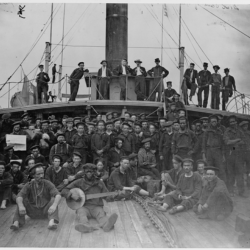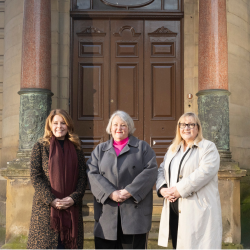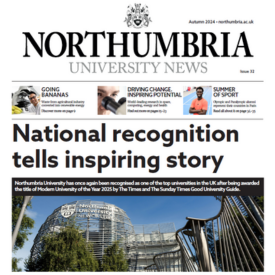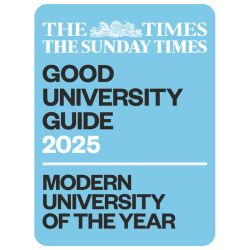Postgraduate research is central to what we do and the postgraduate student community forms an important and lively part of our research culture. We offer a dynamic postgraduate training programme, which includes workshops on publishing, course design and careers both inside and beyond academia. We also run a bespoke teaching shadowing scheme, in which PhD students receive training and gain teaching and marking experience by shadowing a member of staff and teaching seminar sessions over the course of a semester.
As a member of the AHRC-funded Northern Bridge Consortium Doctoral Training partnership we work with our partners to offer Collaborative Doctoral Award Projects which embed PhD students in organisations such as the Laing Art Gallery, Seaton Delaval Hall, New Writing North, and Tyne and Wear Archives and Museums. These projects provide hands on experience of how research expertise can be applied for social and cultural benefits as well as helping to strengthen our partnerships and provide career pathways for postgraduate researchers beyond academia.
Some of Our Current PhD Students:
Literature
 Bethany Brigham
Bethany Brigham
Medical Fictions and Healing Words: The Gothic Narratives of the Medical Profession, 1750-1850
After having completed both an English Literature and History BA and English Literature MA at Northumbria University, I am now undertaking an AHRC funded PhD. My project focuses on gothic fiction in relation to the discourse and practice of the medical profession in the eighteenth and nineteenth centuries. My broad research interests are cultural uses and transmissions of literary narrative, convention and trope, and the relationship between fiction and medico-scientific contexts. My area of expertise is Mary Shelley, particularly in regards to Frankenstein.
Email: beth.brigham@northumbria.ac.uk
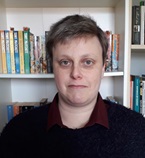 Emma Catan
Emma Catan
Cross-dressing and 'Criminality' in the Neo-Victorian City
I achieved a BA in English and Sociology and MA in English Literature at Northumbria and am completing a part-time PhD. My research interests centre around gender performance within city-spaces, and how spaces and behaviours are policed. I am especially interested in contemporary British literature, children's literature, fantasy and popular fiction (such as the works of Sir Terry Pratchett), American and Victorian literature. I am currently working on a neo-Victorian and Victorian Studies webcast. I am also a qualified careers adviser and currently work in this capacity.
Email:
emma.catan@northumbria.ac.uk
 Katie Liddane
Katie Liddane
Bewitching the North East: Witchcraft in the North East of England 1642-1673, and its legacy today.
Katie Liddane gained her BA in History in 2016 and her AHRC funded MRes, also in History, in 2017 both at Northumbria. She is now a PhD student funded by the AHRC through the Heritage Consortium. Supervised by Claire Nally (Northumbria), Amanda Capern (Hull) and David Clarke (Sheffield Hallam), her thesis is on seventeenth century witchcraft in the North East of England and its legacy. Beyond witchcraft history, her research interests are historical fiction, intersectional feminist theory in literature and history, and the Gothic; specifically gothic tourism.
Email: katie.m.liddane@northumbria.ac.uk
 Katherine Stanton
Katherine Stanton
Common People: Class in Post-Millennial British Literature
I studied English at Newcastle University as an undergraduate, going on to complete my MLitt there in 1999. I then worked in the literary industries for twenty years, as a trade editor and organising literary festivals nationally and internationally. My PhD is a collaborative study, working with the writing development organisation New Writing North, and through profiling their Common People project my research explores contemporary working-class writing, showing why issues of class provide a vital lens through which to understand literature in the UK today.
Email: katherine.stanton@northumbria.ac.uk
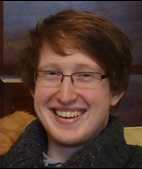 Laurence Sullivan
Laurence Sullivan
‘Every Woman Her Own Doctress’: Literary Portrayals of Lay Women Practitioners on the Stage and Page in Eighteenth-Century Britain.
My current research is focused on exploring literary representations of lay women who practiced medicine during the eighteenth century. I am interested in offering new interpretations of established characters in the literary canon by examining them through the lens of domestic medicine and in the context of medical self-help manuals. Through the study of how such women were represented creatively on the page and stage, I aim to further develop our understanding of the role medical self-help played in society, and how women could be empowered by being given the means to take ownership of their own health, that of their household’s and, potentially, even that of the wider community around them. This interdisciplinary study enables the interplay between different forms of text to be revealed, contributing new knowledge to both the fields of literary criticism and medical/cultural history, each informing the other to highlight the key – but all too often overlooked – role women played in the realm of domestic medical practice during the eighteenth century. My PhD is funded by the Leverhulme Trust as part of the major project Writing Doctors: Representation and Medical Personality, ca. 1660-1832, and is supervised by Prof. Clark Lawlor, Prof. Allan Ingram and Dr. Ashleigh Blackwood.
Qualifications: MA Shakespeare and Theatre (University of Birmingham); MDrama (Hons) Drama and Theatre Studies (University of Kent)
Email: laurence.sullivan@northumbria.ac.uk
 Daisy Winter
Daisy Winter
The Emergence of Women’s Memoir in England, 1660-1740
After completing my BA and MA in English Literature at Northumbria University, I returned in 2019 to take up a fully-funded PhD. My research interests lie broadly in the relationship between print and manuscript cultures, concepts of interiority and cultural intimacy. I am currently researching the emergence and development of women’s memoir throughout the long eighteenth century. I am interested in the slipperiness of genre in this period, and the thesis encompasses a broad range of spiritual autobiographies, private diaries, novels, and other writings.
Email: daisy.l.winter@northumbria.ac.uk
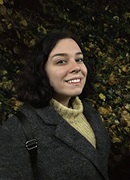 Eloise Scott
Eloise Scott
Space, Solitude and the Sublime: Urban Romantic Writers and the Architecture of the Mind
I studied my BA at Newcastle University and my MA at Durham University, before joining Northumbria University for a PhD fully funded by Northumbria’s Research Development Fund. My research interests centre around Thomas De Quincey and William Wordsworth, exploring the ways in which London in the long eighteenth-century inspired sublime labyrinthine landscapes and subversions of solitude. I am particularly interested in how the Romantic imagination is challenged by the metaphysical oppression of the city, and how psychological repercussions are embodied within these writer’s poetry and prose through their use of internal geographical and architectural spaces to translate memory and trauma.
Email: eloise.j.scott@northumbria.ac.uk
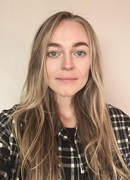 Chloe Renwick
Chloe Renwick
'“To Register her vertues, I should spend / An age of time": Political Reflections in Thomas Heywood’s Ages Pentalogy'
My thesis reads Heywood's spectacular dramatisations of mythology in light of important contemporary political analogues. The plays have suffered critical neglect due to their unusual style but Heywood’s spectacles are deeply embroiled in politics. The Ages allow us to understand the ways in which Elizabethan political power was recognised and interpreted in the 1590s, and beyond. The project grew out of my BA and MA dissertations that focused on early modern adaptations of classical mythology in Shakespeare’s Troilus and Cressida and Marlowe’s Dido, Queen of Carthage. I gained my BA in 2015 and MA in 2016 at Northumbria.
Email: chloe.renwick@northumbria.ac.uk
Publications:
Review: Christopher Marlowe, Theatrical Commerce, and the Book Trade. Edited by Kirk Melnikoff and Roslyn L. Knutson, for the journal English (2021).
 Eman Alasah
Eman Alasah
Colonial encounters and liminal spaces in Post-Oslo Palestinian Memoirs
I have graduated with a BA degree in English and French from Bethlehem University in Palestine. I was later awarded with the Durham-Palestine Educational Trust scholarship, through which I did my masters in cultural and literary studies at Durham University. My dissertation was about the manifestations of cultural memory and identity in the post-war German context. Currently, I am doing my PhD at Northumbria, focusing on postcolonial theory and contemporary Palestinian autobiographical and life writings. My research interests include postcolonial and world literatures, critical theory and intersectional feminism.
Email: eman.alasah@northumbria.ac.uk
 Sharon Robinson
Sharon Robinson
The Malevolence of Things: Materialism and the Inanimate in the Modernist Ghost Story 1918-1938
My research stems from a long-term interest in ghost stories, including a spell when I taught a short course on them for the WEA. I am also very interested in the wider historical context for these stories, including the Victorian period, and both world wars.
Email: Sharon3.robinson@northumbria.com
 James Ward
James Ward
Domestic space in the colonial fiction of Joseph Conrad and his contemporaries, 1880-1914
I completed a BA Honours degree in English and History at Northumbria University in 1994. After a number of years teaching Graphic Design and Photography at a local sixth-form college I returned to Northumbria University in 2016 and gained a Master’s Degree with Distinction in English Literature. During this time I developed a particular interest in critical theory and the work of Joseph Conrad. My doctoral thesis explores the shared concerns of postcolonial and spatial theory in relation to the presentation of domestic space in the colonial fiction of Conrad and his contemporaries. My article ‘Indigenous domestic space in Frank Swettenham’s Malay Sketches and Joseph Conrad’s ‘The Lagoon’’ will be published in the Spring 2021 edition of The Conradian.
Email: james.w.ward@northumbria.ac.uk
Linguistics
 Andrea Canavosio
Andrea Canavosio
Argentinian Spanish as a Second Language Instructors’ Attitudes towards the Cordobese Accent and its Implications on Acquisition
I am EFL teacher, translator and licentiate. I hold and MA in English Applied Linguistics. I am a Phonetics and Phonology and English Language lecturer at the School of Languages, National University of Córdoba, Argentina. My main research interests include English and Spanish phonetics and phonology, language attitudes, sociophonetics, second language acquisition and L2 assessment.
Email: andrea.canavosio@northumbria.ac.uk
 Çağlar Davutoğlu
Çağlar Davutoğlu
Language
variation in divided Cyprus: Language variation and Change in North Cyprus
I studied applied
lingustics and TESOL MA in Newcastle University. My PhD research at Northumbria
university attempts to unveil generational change through history in North
Cyprus. Previously, in my MA research, it was hypothesised
that participants with a foreign language contact comprehend and produce
different structures from who lived in a homogenous environment without any
foreign language exposure.
I believe that this research will bring significant
contributions to the field of variationist and also socio-linguistics. As
achievements, I invented a new language from my bachelor, which I call it
“Auris” language. Also, I have seven honour and high-honour certificates from
my bachelor's degree.
E-mail: chaglar.davutoglu@northumbria.ac.uk
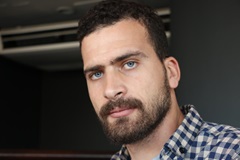 Rachid Khoumikham
Rachid Khoumikham
Wandering in the Folklore of the Desert: Language Attitudes and Ethnicity in the Algerian Nomadic Society of Ouled Naíl
At present, I am a PhD researcher at Northumbria University. My PhD project attempts to unveil attitudes towards different Algerian Arabic varieties specifically Nomadic Ouled Nail Algerian Arabic. Previously, I took a PhD pre-sessional course at CCCU, Kent. The program revolved around research and language skills. I graduated my master’s degree with first class honours in sociolinguistics and gender studies at University of IbnBadis (Mostaganem), Algeria. My masters project revolved around understanding the influence of ideology on translation. This allowed me to sit a national contest for PhD funding in the UK in which I won a place amongst the top ten of my region. Prior to my master`s, I graduated my BA with first class honours in English language, linguistics, and history from Lounici Ali University (Afroun), Algeria. My research interests include: Algerian Sociolinguistics; Social Psychology of Languages; Language Attitudes and Accessibility to the Job Market; Mixed Methods Research.
Email: rachid.khoumikham@northumbria.ac.uk
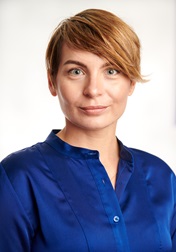 Kinga Patterson
Kinga Patterson
Individual differences in the language-attention interaction: formal literacy effects on attention allocation during visually situated language processing tasks in adult native English speakers
This interdisciplinary project motivates a non-modular, interactionist account of cognitive operations relevant for language processing, and plans to observe and document SES-related individual differences in L1 ultimate attainment, by recording adult native speakers’ grammatical performance in online visual world tasks and exploring the potential relationship between SES-related correlates and late-acquired, syntactically complex constructions. The studentship is funded by the Northern Bridge Consortium's Doctoral Training Programme.
Email: kinga.patterson@northumbria.ac.uk
Creative Writing
 Allison Adkins
Allison Adkins
Can a YA dystopian novel reflect political complexity? And is a YA vampire novel an effective medium in which to do this?
My interest in the YA vampire novel began during the third year of my undergraduate degree. I began writing my first novel, which researched the role of indoctrination in creating dystopian worlds, for my BA dissertation. The beginning 3500 words won the 2019 Northumbria students and alumni New Writing North Award. I continued writing the novel as part of my MA in Creative writing which I completed in 2020. My PhD thesis will seek to determine whether a YA novel can be an effective medium for reflecting complex contemporary politics.
Email: allison.adkins@northumbria.ac.uk
Twitter: @AdkinsAllison
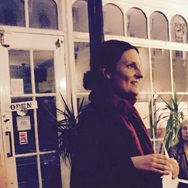 Catherine Ayres
Catherine Ayres
Catherine Ayres is a full-time secondary school English teacher from Alnwick, Northumberland, where she runs a thriving poetry club for her students. She has an English degree from Leicester University, and a Masters degree in Victorian Literature from Leeds University. Her first poetry collection, Amazon, was published by Indigo Dreams in 2016. She is currently in her fourth year of a critical practice PhD, focusing on women who lived in the forts on Hadrian’s Wall at the time of Roman occupation, and how their silences can elide with her own.
Email: catherine.ayres@northumbria.ac.uk
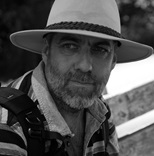 Stephen Fender
Stephen Fender
The aim of my PhD Creative Writing research is to interrogate the processes involved in the creation and establishing of a narrative gender-identity for trans-gender people. My thesis will include a metafiction novel of 70,000 words. My choice in using metafiction arises from my proposition that it aligns in a markedly powerful way with the fragmented sense of self experienced by trans-gender individuals. My intention is to provide a clearer understanding of how gender-identity is shaped and reshaped in response to surrounding social and religious narratives.
Email: stephen.fender@northumbria.ac.uk
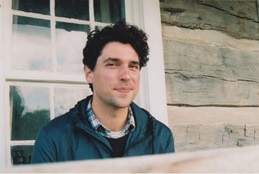 Mark Holmes
Mark Holmes
Performing Elvis: A Creative and Critical Exploration of American Post-War Popular Culture and Working-Class Masculinities in the North East of England
Born and raised in Newcastle upon Tyne, Mark started writing stories as a child and hasn’t stopped since. In 2015 he completed a degree in Creative Writing through the Open University, followed by a Master’s at the University of Edinburgh. He is now studying towards a PhD in Creative Writing at Northumbria University, has been shortlisted twice for the Sid Chaplin Award and, in 2020, was awarded a Northern Writers’ Award for his work. His research interests include: film studies, gender studies, American studies, and creative writing.
Email: mark4.holmes@northumbria.ac.uk
 Shaun Wilson
Shaun Wilson
Outsider Voices in Autofiction
Shaun Wilson was born in 1980, and raised in Wigton, Cumbria. He recently completed an MA in creative writing at Northumbria University, winning the prize for ‘Best Postgraduate Student in Humanities’. His debut, a work-in-progress, won a Northern Writers’ Award, made the final of PRH’s Write Now programme, and saw him tipped for ‘big things’ by Kerry Hudson, in an article on working class writers in The Observer. In 2019 an excerpt was published in Kit de Waal’s Common People anthology. Following New Writing North’s 2019 Talent Party, Shaun signed up with Susan Smith at MBA Agents.
Email: shaun.wilson@northumbria.ac.uk
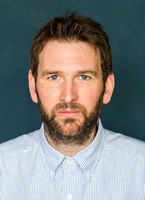 Andrew Hankinson
Andrew Hankinson
How can non-fiction writing practice make use of a hybrid form to report effectively and uniquely on attitudes to ‘outsiders’ in North East England?
Andrew is a journalist and author. His research interest is in experimental creative nonfiction.
Author of: You Could Do Something Amazing With Your Life [You Are Raoul Moat]
Some Recent PhD Graduates
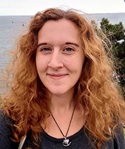 Julia Ditter
Julia Ditter
Shifting Borders and Contested Natures in Scottish Literature, 1800 – present
I gained a BA in English and American Studies and Spanish, and an MA in British and North American Cultural Studies at the University of Freiburg (Germany) and studied abroad for two semesters at the University of Seville (Spain) and the University of Aberdeen (UK). My research interests include British, Irish and Scottish literatures, cultural studies, border studies, animal studies, mobility studies and ecocriticism. My dissertation focuses on the forms through which borders and the environment are articulated in Scottish literature from the nineteenth century onwards. I’m co-editor of Arcadiana, a blog hosted by the European Association of the Study of Literature, Culture and the Environment (EASLCE), and Graduate Student Representative of the British Association for Contemporary Literary Studies (BACLS).
Email: julia.ditter@northumbria.ac.uk
 Kyu Hyun Park
Kyu Hyun Park
The Pragmatics of Production: A Relevance-Theoretic Heuristic
My current thesis makes proposals about the details of production and suggests how a relevance-theoretic approach helps to account for communicators’ production. This thesis develops the idea that a production heuristic constrains and guides the formulation of utterances as similar as a relevance-guided comprehension heuristic constrains and guides addressees’ interpretation. Before starting my PhD at Northumbria University, I completed my first MA in Linguistics and English Language Teaching at University of Leeds and the second MA in Cultural Studies at SOAS, University of London.
Email: kyu.park@northumbria.ac.uk
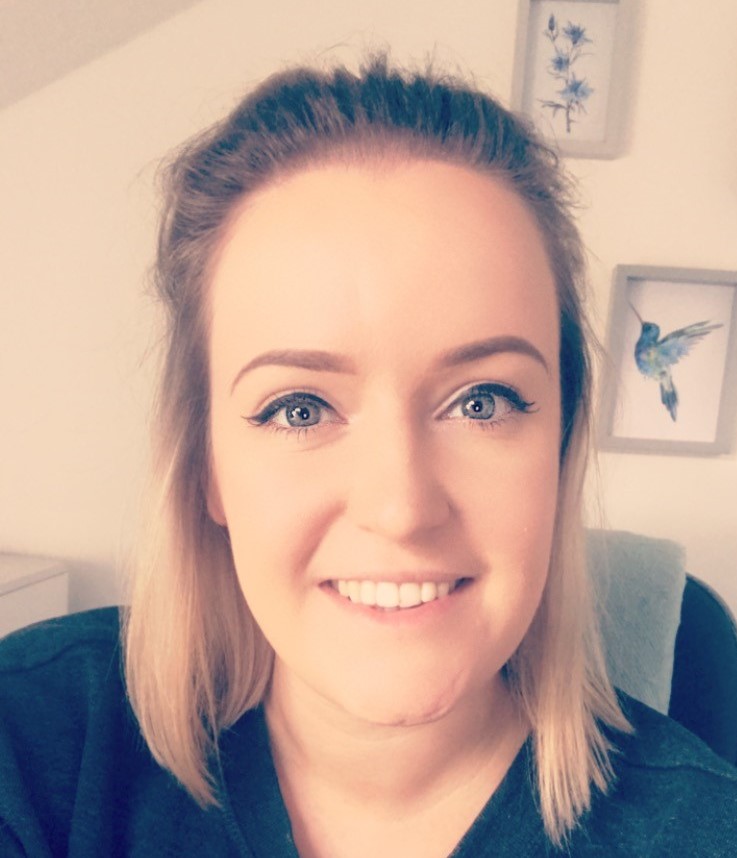 Louise Pybus
Louise Pybus
Language, identity, and learning: exploring the experiences of students with English as an Additional Language (EAL) in rural schools
I graduated from Northumbria University in 2017 with a first-class BA (Hons) English Language Studies degree. I then went on to study my PGCE at Sunderland University and had a placement at a rural school in North Yorkshire. It was during this placement that my interest in the experiences of students with English as an Additional Language (EAL) first arose. Using qualitative methods, my PhD research focuses on the everyday experiences of these students that are learning in schools with low populations of EAL.
Email: louise.c.pybus@northumbria.ac.uk
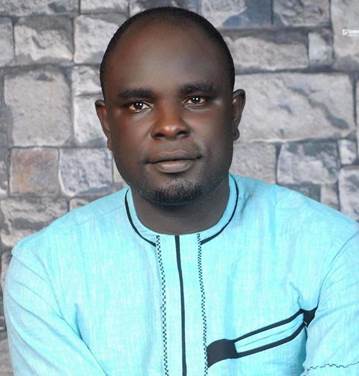 Kingsley Oluchi Ugwuanyi
Kingsley Oluchi Ugwuanyi
English language ownership perceptions of speakers of Nigerian English
Kingsley Oluchi Ugwuanyi is currently finishing off his doctoral research on Nigerian English at Northumbria University, United Kingdom. Kingsley holds BA (English & Literary Studies) and MA (Applied Linguistics) from the University of Nigeria, Nsukka, where he also teaches English linguistics. His research interests cut across sociolinguistics, Nigerian English, world Englishes and applied linguistics.
Email: kingsley.ugwuanyi@northumbria.ac.uk
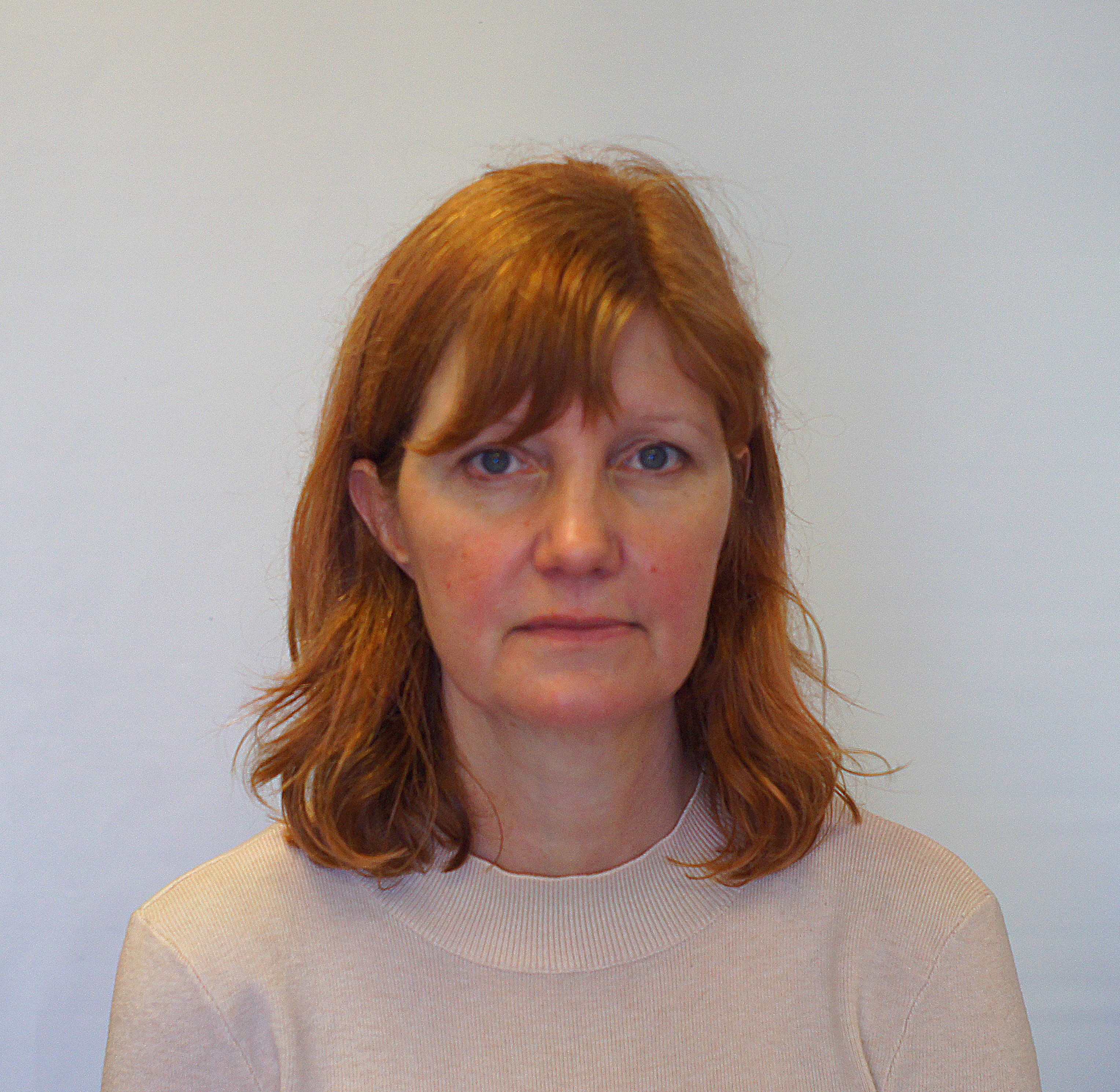 Susannah Ronnie
Susannah Ronnie
Mapping a Mutiny: How can poetry be used to imagine and interrogate the events surrounding the mutiny that took place in 1611 during Henry Hudson’s final voyage?
Susannah studied English Language and Literature at Newcastle University, returning to study creative writing after 14 years in the recruitment industry. She has published poems in magazines and her collection Digging Up the Dead (Red Squirrel Press, 2014). Her short plays have been performed at Live Theatre and Octagon Theatre Bolton and in 2015, Queen's Hall Arts, Hexham commissioned a Mesolithic play, After the Ice, for 7-11 year olds. Susannah’s research interests centre on the relationship between history and fiction and she recently presented at the Historical Fictions Research Network Conference. Susannah has also exhibited book art and worked with New Writing North on their young people’s programme for a number of years.
Email: susannah.ronnie@northumbria.ac.uk

 Bethany Brigham
Bethany Brigham Emma Catan
Emma Catan Katie Liddane
Katie Liddane Katherine Stanton
Katherine Stanton Laurence Sullivan
Laurence Sullivan Daisy Winter
Daisy Winter Eloise Scott
Eloise Scott Chloe Renwick
Chloe Renwick Eman Alasah
Eman Alasah Sharon Robinson
Sharon Robinson James Ward
James Ward  Andrea Canavosio
Andrea Canavosio Çağlar Davutoğlu
Çağlar Davutoğlu Rachid Khoumikham
Rachid Khoumikham  Kinga Patterson
Kinga Patterson Allison Adkins
Allison Adkins Catherine Ayres
Catherine Ayres Stephen Fender
Stephen Fender Mark Holmes
Mark Holmes Shaun Wilson
Shaun Wilson Andrew Hankinson
Andrew Hankinson  Julia Ditter
Julia Ditter Kyu Hyun Park
Kyu Hyun Park Louise Pybus
Louise Pybus Kingsley Oluchi Ugwuanyi
Kingsley Oluchi Ugwuanyi Susannah Ronnie
Susannah Ronnie


